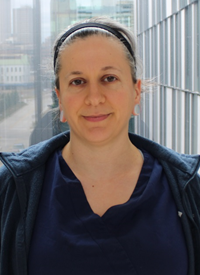Vulnerable Populations Affected by Sexual Violence
- Category: Living Well
- Posted On:
- Written By: Heidi Martin, RN, BSN, SANE-A

April is Sexual Assault Awareness Month. It is common knowledge that sexual violence exists because sexual violence is unfortunately quite common.
The Centers for Disease and Control and Prevention describes how big of a problem sexual violence is by providing fast facts that state:
- More than 1 in 3 women experience sexual violence involving physical contact during their lifetime
- Nearly 1 in 4 men experience sexual violence involving physical contact during their lifetime
There are millions of people each year that are affected by sexual violence and the numbers underestimate the magnitude of this problem due to cases going unreported. This has also influenced the many myths regarding sexual assault. Educating yourself and others will assist in dispelling these myths.
An example of a sexual assault myth is the concept of the archetypal victim, specifically how your appearance relates to your chances of being assaulted. The thought of sexual assault for many conjures up an image of an intoxicated college-age female or other such stereotypes. While this certainly is someone who may be victimized, a reality-based reflection of victims is very broad in context and covers LGBTQ, immigrant populations, male victims, elderly victims, and so on. There are two specific populations that are most commonly overlooked.
The populations that have a higher than average rate of victimization and are not considered often when addressing the needs of victims are people with mental health diagnoses and people with physical/cognitive disabilities. These members of our community are purposefully targeted as they are deemed to be less credible when they speak out or they do not have the ability to speak out at all.
Adults with intellectual disabilities may in fact be the most vulnerable. They are taught compliance in all interactions and generally seek approval from other adults. The myth that only “attractive” people are targeted for this crime is just that – a myth. If sexual assault is about power and control, this specific group stands out as being the easiest target. According to a recent story from NPR, “People with intellectual disabilities are sexually assaulted at a rate seven times higher than those without disabilities. That number comes from data run for NPR by the Justice Department from unpublished federal crime data”. Assaulted at a rate seven times higher than people without a disability. The reality is worse than what most would think.
Fewer services exist for these survivors. They report less often. There aren’t any shelters available when it’s not safe for them to go home due to specialized needs. They receive medical care post-assault less often, as many do not know how to tell their caregivers what has occurred, or the situation may be that their caregiver is the assailant. In any case, this population deserves the same opportunity for care and reserves the right to access services as any other population. Justice and compassion are not something to be reserved for more capable members of the community. What we can do as a community to respond to sexual assault is to understand the realities of it and reach out to our family members, our friends, and neighbors that may have a disability and start the conversation. It’s okay to ask people how they are doing if they feel safe, and if you can help. The most important thing you can do for all sexual assault survivors is to listen and believe their words and ensure that their needs are being met.
University Medical Center has been designated to provide comprehensive forensic exams to all victims of sexual assault in the New Orleans area. We proudly serve all members of our community and hope to assist anyone who may be in need. For immediate assistance please come to the Emergency Department at University Medical Center located on the second floor.
For more information please visit www.uncno.org/forensics.

Heidi Martin RN, BSN, SANE-A is a Forensic Nurse Specialist at University Medical Center


